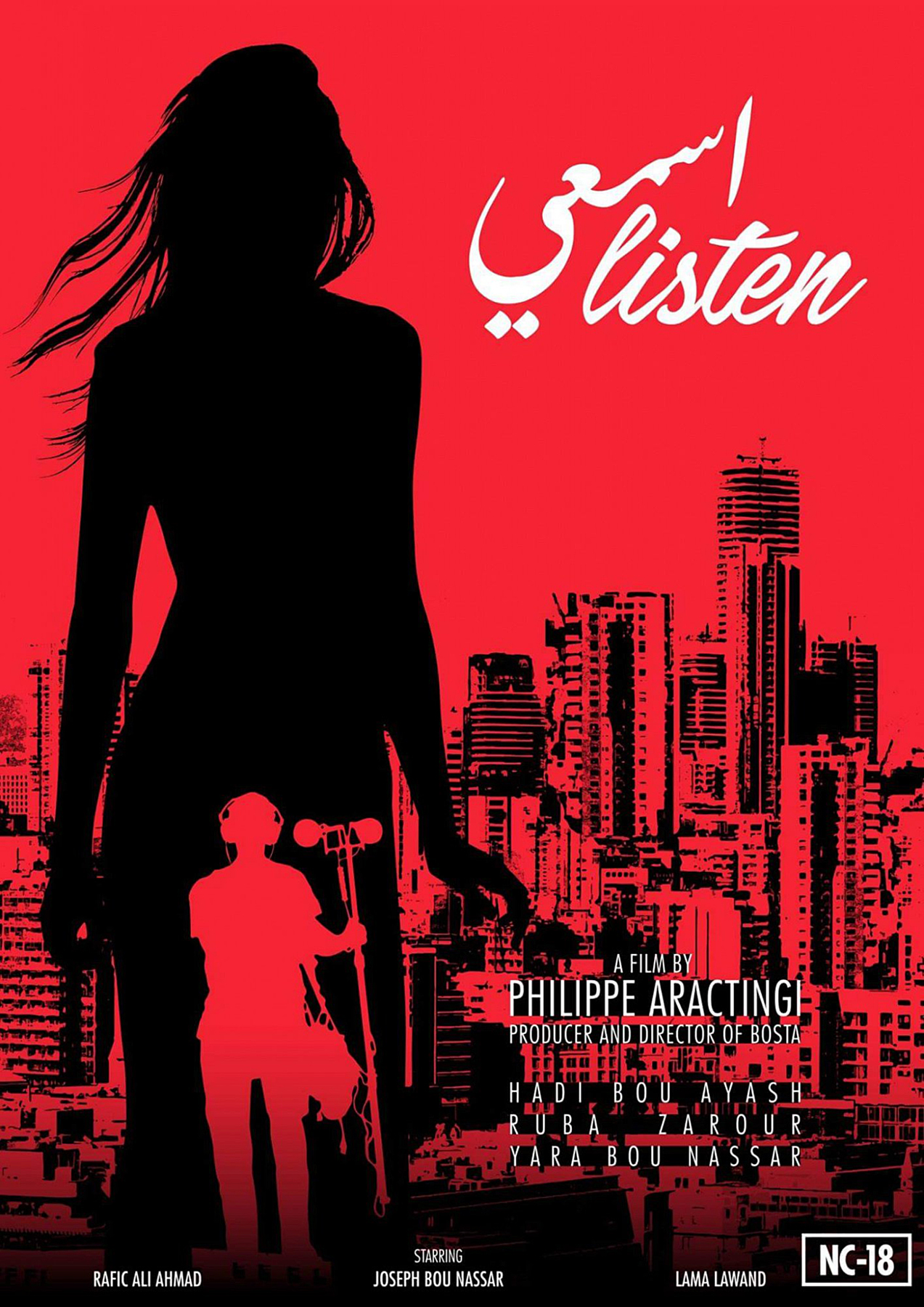
- Golden Globe Awards
Listen (Lebanon)
Beirut today: Joub and Rana meet on a video shoot for a commercial. He is a handsome and sensitive sound engineer and she is a gorgeous model, a strong-willed and carefree woman. It is an instant connection between the two and they soon start dating, their different social backgrounds never being an issue. He grew up in a village with modest means. He calls himself a peasant and drives a beat-up Renault 4L. She is a spoiled material girl from a well-off family.After an accident, Rana (Ruba Zaarour) is plunged into a coma. Joub (Hadi Bou Ayach) starts sending her sound compositions captured from recordings of the places they used to go to with the hope this sound therapy will help bring her back to him and heal her in some way, maybe more…Love is stronger than grief.For Lebanese filmmaker Philippe Aractingi, Listen is essentially a contemporary love story. “It takes place in the war-ridden country of a Lebanon in constant turmoil where for me the only form of resistance and survival is love, he explains. As a Lebanese living in the midst of political and social chaos, I have deliberately decided to leave the drama genre and tell a story that breaks the conventions of typical Middle Eastern themes.”Known for his acclaimed first two pictures, Bosta (2005) and Under the Bombs (2007) and many powerful documentaries (notably Heritages), he sees his latest opus as a departure. Describing Listen as a sensual film with no boundaries, told through one of man’s five senses: sound. “My goal is to invite viewers into Joud’s universe of sounds and make them see/hear the world differently and make them experience Beirut’s diverse repertoire of sounds, showing how this unpredictable city abides by no set laws of logic, oscillating between smooth sailing and extreme chaos.” A way to portray life in Lebanon that transcends the usual clichés. In a vibrant and delicately evocative manner, it offers a sensorial journey rhythmically pulsating to the beat of Beirut’s multitude of noises and, at times, its silence.”Listen also explores the prominent issue of femininity and what it means for Lebanese women in a country where emancipation is still not for all and where they too often remain prisoners of social norms that end up dictating their duties such as finding a husband and starting a family as a way of proving a woman’s worth. Controversy erupted when Listen was released in Lebanon in last February. Despite only including two brief love scenes, it created a massive debate and was penalized by religious censorship there and prevented from distribution in the Gulf region. But Aractingi hopes that such a film might be able to show the world that there is another reality among Arabs, particularly in Lebanon. “For me, this is a film of resistance because it was opposed and banned due to its sensuality, he adds. It is also a form of resistance, in presenting an image that contrasts with the standard Western view.”

